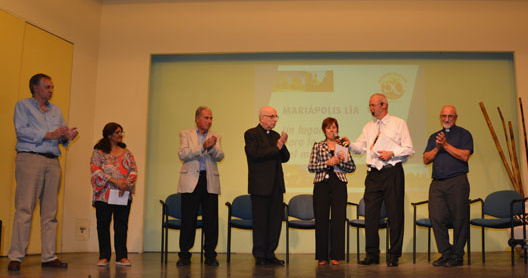
20 May 2018 | Focolare Worldwide
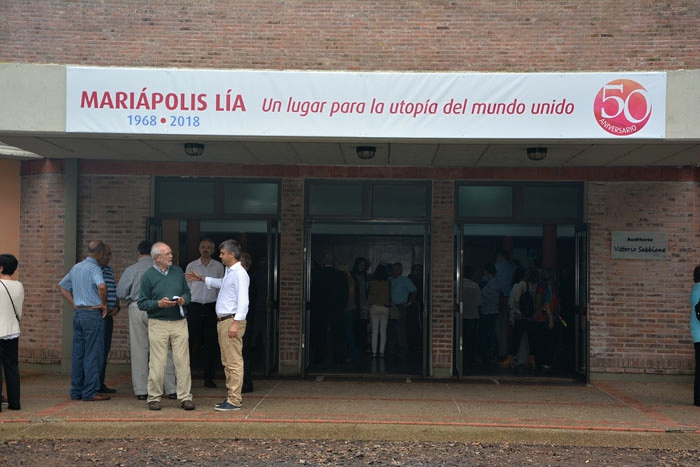 It began as a dream, just as every other Focolare town had. In 1950, Switzerland, after contemplating from a mountain above the Benedictine Abbey of Einsiedeln, Chiara Lubich had the idea that one day the spirituality of unity would produce something similar: “A small town with all the elements of a modern city: houses, churches, schools, shops, businesses and other services. A community of people from diverse backgrounds joined by Jesus’s new commandment: ‘Love one another as I have loved you.’” Her dream came true, first in Loppiano, Italy, then in another 24 small towns. Mariapolis Lia is one of them in the middle of the Argentine Pampas. Carlos Becaria, who is co-responsible for the town, was a member of the first group of pioneers: “There wasn’t anything yet. But there was a prophetic inspiration. Vittorio Sabbione, one of the first focolarinos, said to us: “You’re here because you chose God. Discomforts won’t be lacking, so you’ll have to keep Jesus on the Cross in mind. I’m not offering you anything ready-made: you have to build it all for yourselves. We stayed because we believed in that dream.”
It began as a dream, just as every other Focolare town had. In 1950, Switzerland, after contemplating from a mountain above the Benedictine Abbey of Einsiedeln, Chiara Lubich had the idea that one day the spirituality of unity would produce something similar: “A small town with all the elements of a modern city: houses, churches, schools, shops, businesses and other services. A community of people from diverse backgrounds joined by Jesus’s new commandment: ‘Love one another as I have loved you.’” Her dream came true, first in Loppiano, Italy, then in another 24 small towns. Mariapolis Lia is one of them in the middle of the Argentine Pampas. Carlos Becaria, who is co-responsible for the town, was a member of the first group of pioneers: “There wasn’t anything yet. But there was a prophetic inspiration. Vittorio Sabbione, one of the first focolarinos, said to us: “You’re here because you chose God. Discomforts won’t be lacking, so you’ll have to keep Jesus on the Cross in mind. I’m not offering you anything ready-made: you have to build it all for yourselves. We stayed because we believed in that dream.” 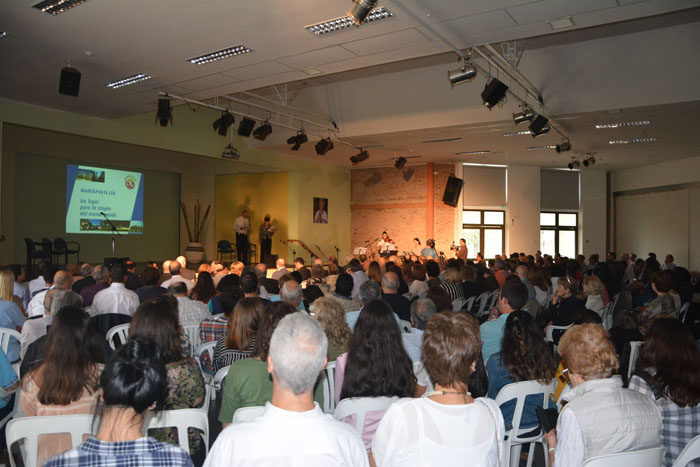 Mariapolis Lia is named after Lia Brunet (December 25, 1917 – February 5, 2005), one of the first companions of Chiara Lubich, invited by her to become a pioneer and take the charism of unity to the Latin American continent. A woman of Trent, like the foundress of the Focolare, she was labelled a revolutionary because of the radical way they lived the Gospel on a continent marked by so many social problems. Obviously, she never imagined as she gave a strong push to the Mariapolis in Argentina, that one day it would bear her name. “Lia”, just like Loppiano in Italy, which was recently visited by Pope Francis, strives to be a tangible sign of a dream that is coming true: a more fraternal world renewed by the Gospel. Currently 220 people live in Mariapolis Lia, but it welcomes hundreds of visitors throughout the year, mostly young people for long or short stays. Nearby stands Solidaridad Business Park, inspired by the Focolare’s Economy of Communion Project.
Mariapolis Lia is named after Lia Brunet (December 25, 1917 – February 5, 2005), one of the first companions of Chiara Lubich, invited by her to become a pioneer and take the charism of unity to the Latin American continent. A woman of Trent, like the foundress of the Focolare, she was labelled a revolutionary because of the radical way they lived the Gospel on a continent marked by so many social problems. Obviously, she never imagined as she gave a strong push to the Mariapolis in Argentina, that one day it would bear her name. “Lia”, just like Loppiano in Italy, which was recently visited by Pope Francis, strives to be a tangible sign of a dream that is coming true: a more fraternal world renewed by the Gospel. Currently 220 people live in Mariapolis Lia, but it welcomes hundreds of visitors throughout the year, mostly young people for long or short stays. Nearby stands Solidaridad Business Park, inspired by the Focolare’s Economy of Communion Project. 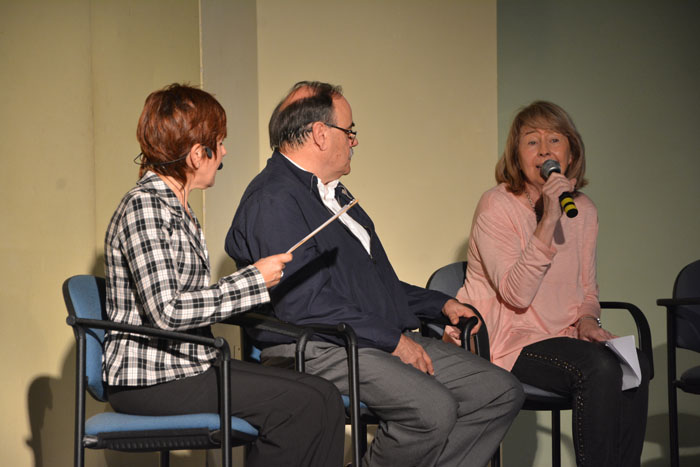 More than 250 people took part in the celebrations at the end of April, which will continue during the 50th anniversary year of the Mariapolis’s founding. They will be attended by Church leaders, representatives from the Movement, Christian Churches, Jewish faithful and people with no religious affiliation. “We got there at night,” recalls Marta Yofre, one of the first young women to arrive on at the threshold of the Mariapolis. I was feeling a sense of powerlessness, but also one certainty: Our Lady would be the one to build it.” Nieves Tapia, founder of the Latin American Centre for Learning and Solidarity Service, attended the training school for young people in the 1980s: “Here I learned to love the other country as my own and to enlarge my heart to all of Latin America.” “Without realizing it, I was given the gift to experience as something normal, what was actually totally revolutionary: love for neighbour.” For Arturo Claria, a psychologist, UNESCO Master in Culture of Peace, what he experienced in the Mariapolis twenty years ago “is a mark that I will never be able to erase, a living demonstration that love transcends life.”
More than 250 people took part in the celebrations at the end of April, which will continue during the 50th anniversary year of the Mariapolis’s founding. They will be attended by Church leaders, representatives from the Movement, Christian Churches, Jewish faithful and people with no religious affiliation. “We got there at night,” recalls Marta Yofre, one of the first young women to arrive on at the threshold of the Mariapolis. I was feeling a sense of powerlessness, but also one certainty: Our Lady would be the one to build it.” Nieves Tapia, founder of the Latin American Centre for Learning and Solidarity Service, attended the training school for young people in the 1980s: “Here I learned to love the other country as my own and to enlarge my heart to all of Latin America.” “Without realizing it, I was given the gift to experience as something normal, what was actually totally revolutionary: love for neighbour.” For Arturo Claria, a psychologist, UNESCO Master in Culture of Peace, what he experienced in the Mariapolis twenty years ago “is a mark that I will never be able to erase, a living demonstration that love transcends life.”  The Bishop of Mercedes-Lujan, Augustin Radrizzani: “It’s moving to realize what significance it has had for our country and for the world. It unites universal peace and brotherly love, illumined by the grace of this ideal.” Eduardo Leibobich from the Hebrew Organization for Inter-Confessional Dialogue, recalled the numerous “Peace Days that were held by the Mariapolis. Methodist pastor Fernando Suarez from the Ecumenical Movement of the Human Rights of People With Different Convictions: “I extend an invitation to join forces. It’s too beautiful the ideal of a free and equal human race, made brother and sister by respect and by mutual love.” Gustavo Clariá
The Bishop of Mercedes-Lujan, Augustin Radrizzani: “It’s moving to realize what significance it has had for our country and for the world. It unites universal peace and brotherly love, illumined by the grace of this ideal.” Eduardo Leibobich from the Hebrew Organization for Inter-Confessional Dialogue, recalled the numerous “Peace Days that were held by the Mariapolis. Methodist pastor Fernando Suarez from the Ecumenical Movement of the Human Rights of People With Different Convictions: “I extend an invitation to join forces. It’s too beautiful the ideal of a free and equal human race, made brother and sister by respect and by mutual love.” Gustavo Clariá
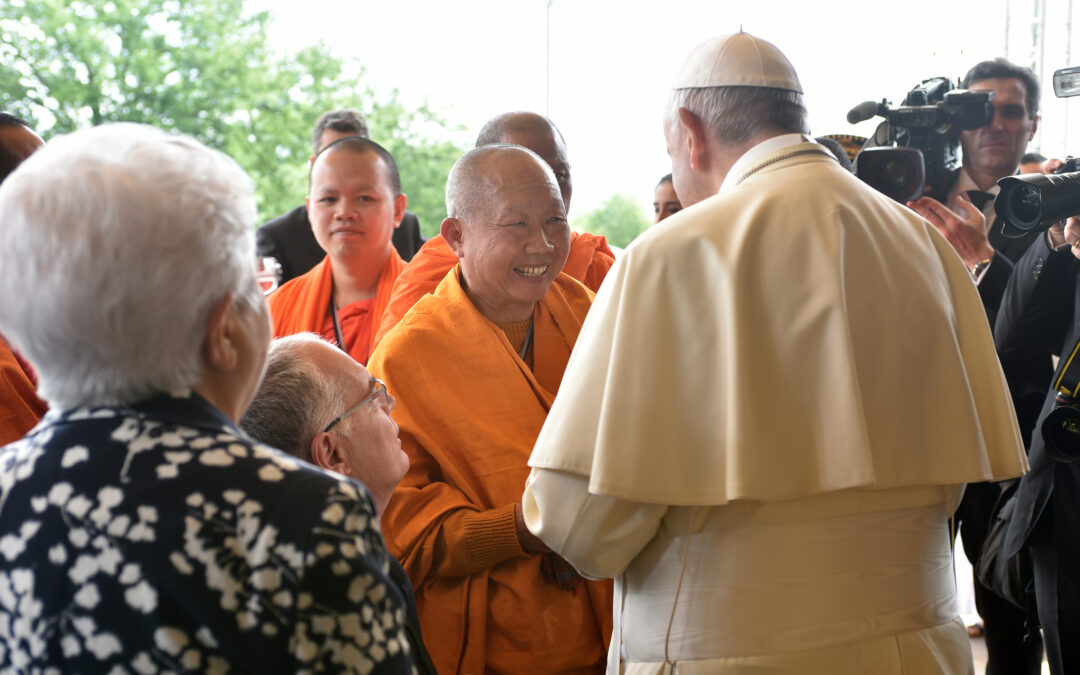
18 May 2018 | Focolare Worldwide
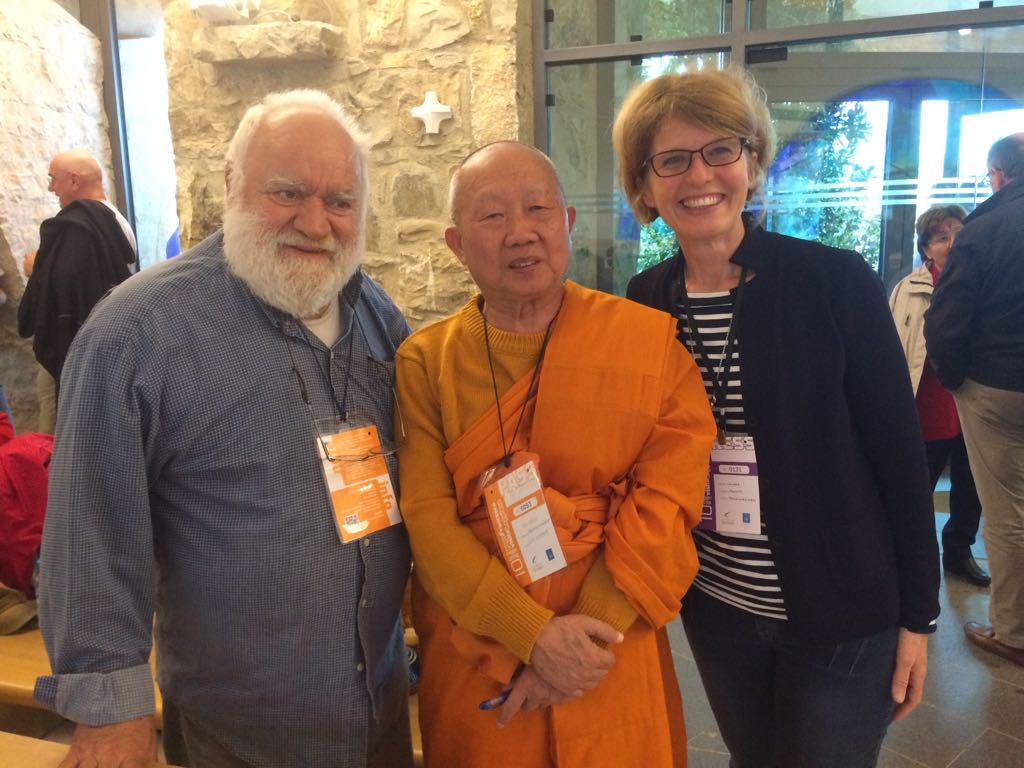 “Recently, just before the Holy Father visited Loppiano, I was in close contact with five Buddhist monks from Thailand,” says Luigi Butori. Originally from central Italy, Butori has lived in southeast Asia for close to 30 years. “I speak their language, and for the occasion I was their interpreter. It’s been an intense, profound, and demanding experience. “When they visited the Focolare Movement’s international center for religious near Rome, they were struck by way two religious brothers, who are no longer so young themselves, served them concretely and did everything they could for them. That’s when the monks began to perceive a light, a harmony, or as one of them put it: a unique ‘voice’ within and around them.” “The monks’ stay continued with a visit to the capital, accompanied by a guide who is a focolarina. The monk’s saw that her eyes ‘had that same smile as the brothers we met earlier.’ Then they spent a day in the city of Lucca, with the Focolare community there – close to 80 people ages 2 to 94. ‘You could see the same light in their faces,’ they said. “The monks briefly stopped for a few hours in Pisa, where the Leaning Tower is, and there was someone from the local community there. They had the same smile. “At this point one of the youngest monks exclaimed, ‘This child of Chiara Lubich has the same type of smile that we found in Rome, Castelli and Lucca – how is that possible?’
“Recently, just before the Holy Father visited Loppiano, I was in close contact with five Buddhist monks from Thailand,” says Luigi Butori. Originally from central Italy, Butori has lived in southeast Asia for close to 30 years. “I speak their language, and for the occasion I was their interpreter. It’s been an intense, profound, and demanding experience. “When they visited the Focolare Movement’s international center for religious near Rome, they were struck by way two religious brothers, who are no longer so young themselves, served them concretely and did everything they could for them. That’s when the monks began to perceive a light, a harmony, or as one of them put it: a unique ‘voice’ within and around them.” “The monks’ stay continued with a visit to the capital, accompanied by a guide who is a focolarina. The monk’s saw that her eyes ‘had that same smile as the brothers we met earlier.’ Then they spent a day in the city of Lucca, with the Focolare community there – close to 80 people ages 2 to 94. ‘You could see the same light in their faces,’ they said. “The monks briefly stopped for a few hours in Pisa, where the Leaning Tower is, and there was someone from the local community there. They had the same smile. “At this point one of the youngest monks exclaimed, ‘This child of Chiara Lubich has the same type of smile that we found in Rome, Castelli and Lucca – how is that possible?’

Buddhist monk Phramaha Thongrattana Thavorn (Luce Ardente) greeting the pope – Foto © R. Orefice – CSC Audiovisivi
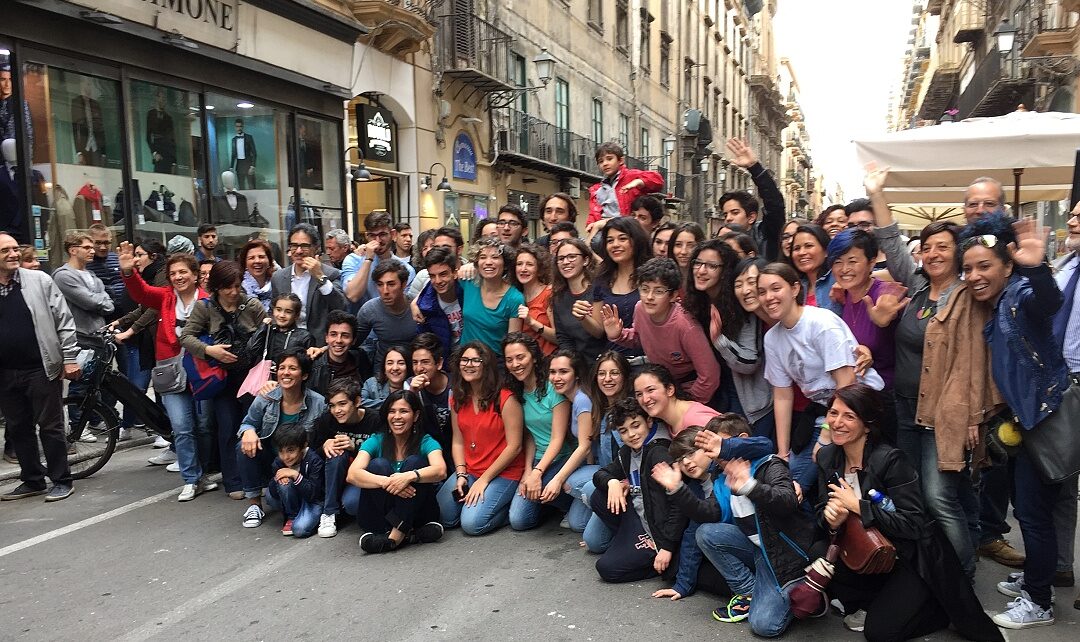
16 May 2018 | Focolare Worldwide
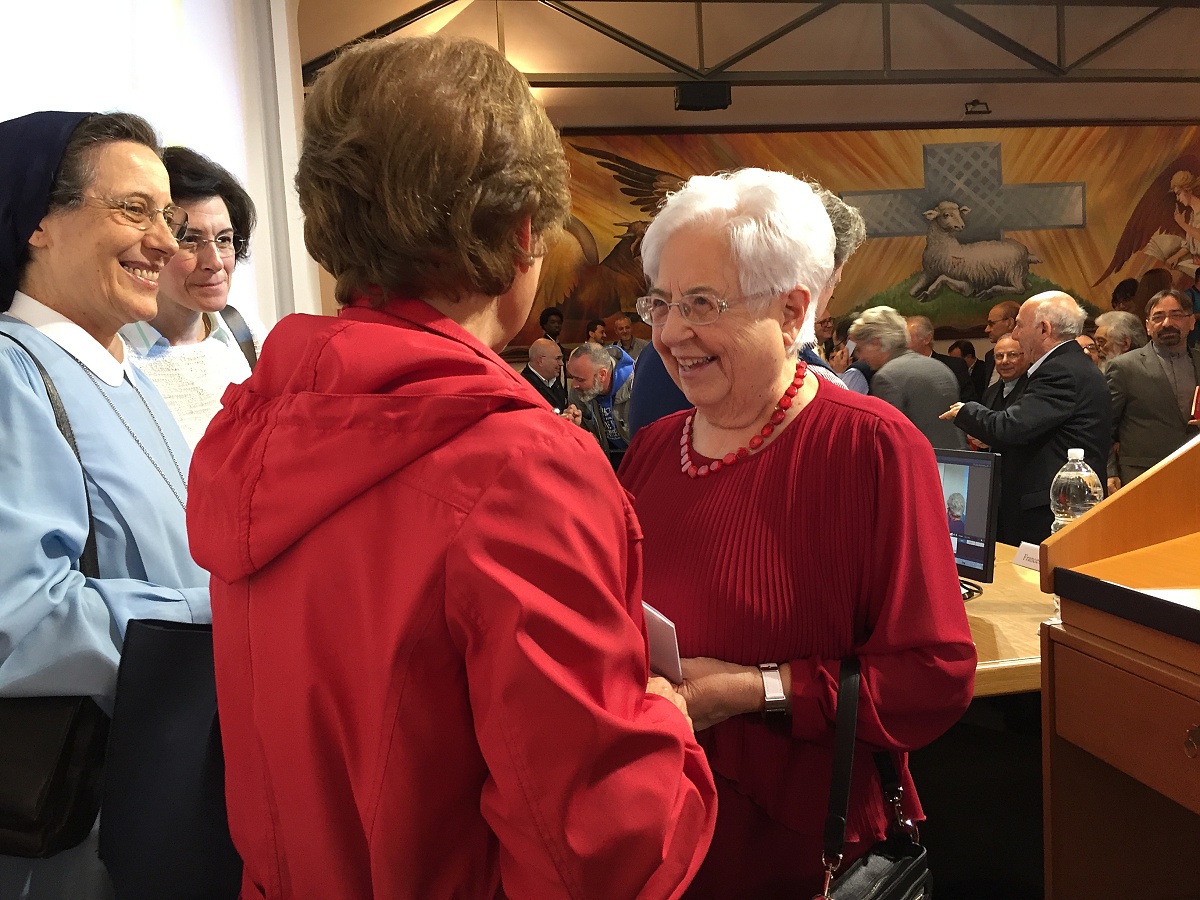 Focolare president, Maria Voce, concluded the event dedicated to the culture of unity and brotherhood, with a meeting of the family dedicated to the Focolare in the capital of Sicily, by offering a challenge: “That Palermo may become the capital of the culture of Resurrection, capital in the sense of “il capo”, (head city) from which the culture of Resurrection flows into the whole world.” Twenty years ago Chiara Lubich had received honorary citizenship in the Sicilian capital. Sincne then, the community has continued to follow this journey of striving to incarnate the words she spoke on that occasion: “Let us promise that Palermo will be forever in our hearts, until, through the audacity and courage of its citizens, it will become a model for many other cities within and beyond Italy, a true city on the hill.” The event, which was part of the Palermo, Capital of Culture 2018, promoted by the Municipality, embraced several fields: Law and Order, ecumenical dialogue, music and show with Gen Verde, workshops, flashmobs and roundtables promoted by the young people. More than 120 people took part in the Relationships and Law Meeting at the Regional Pariliament Building on May 11th. The gathering included presenations by several leaders from the world of Law and Justice, lawyers, students and scholars. Maria Voce concluded the discussions saying that the field Law and Justice is in extreme need of “poeple whose hearts are open to the grand ideal of the unity of the human family, and that for this reason put their whole self into working concretely for the healing of relationships, without fear or comprimise.”
Focolare president, Maria Voce, concluded the event dedicated to the culture of unity and brotherhood, with a meeting of the family dedicated to the Focolare in the capital of Sicily, by offering a challenge: “That Palermo may become the capital of the culture of Resurrection, capital in the sense of “il capo”, (head city) from which the culture of Resurrection flows into the whole world.” Twenty years ago Chiara Lubich had received honorary citizenship in the Sicilian capital. Sincne then, the community has continued to follow this journey of striving to incarnate the words she spoke on that occasion: “Let us promise that Palermo will be forever in our hearts, until, through the audacity and courage of its citizens, it will become a model for many other cities within and beyond Italy, a true city on the hill.” The event, which was part of the Palermo, Capital of Culture 2018, promoted by the Municipality, embraced several fields: Law and Order, ecumenical dialogue, music and show with Gen Verde, workshops, flashmobs and roundtables promoted by the young people. More than 120 people took part in the Relationships and Law Meeting at the Regional Pariliament Building on May 11th. The gathering included presenations by several leaders from the world of Law and Justice, lawyers, students and scholars. Maria Voce concluded the discussions saying that the field Law and Justice is in extreme need of “poeple whose hearts are open to the grand ideal of the unity of the human family, and that for this reason put their whole self into working concretely for the healing of relationships, without fear or comprimise.” 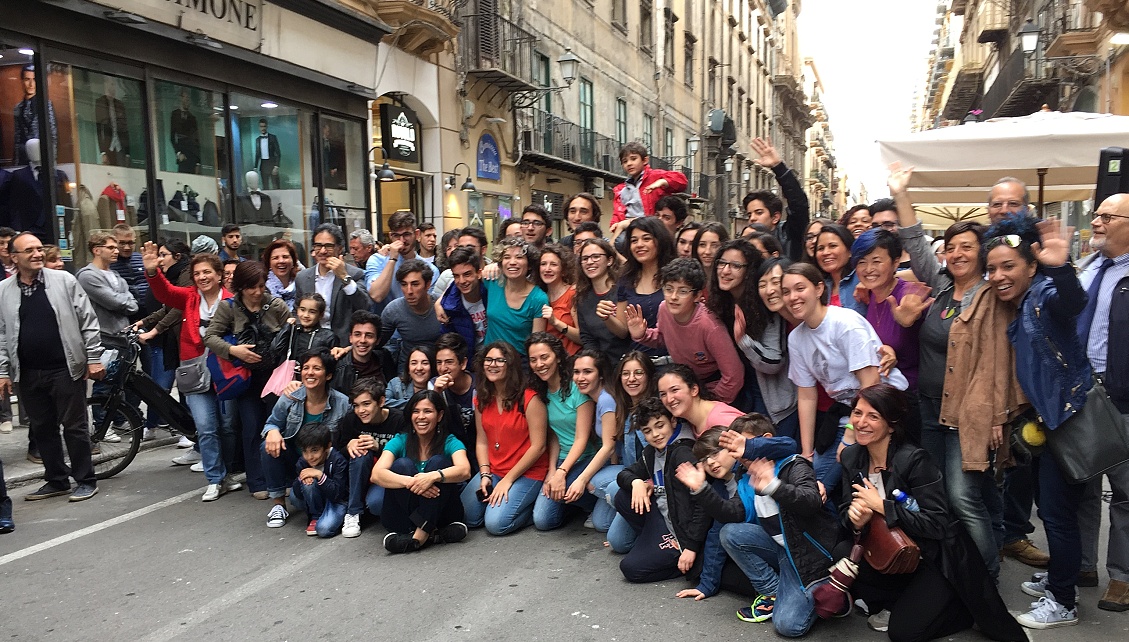 In the afternoon more than 300 young people held a programme on titled Digital Identity, promoted by IUS, and We are the choices we make” presented by Jesus Moran, co-president of the Focolare, and Mayor Leoluca Orlando. The young people presented testimonies of the choices that sometimes place them in crisis: whether to stay in Sicily or put their lives on the line and move to other cities or countries. Jesus Moran encouraged them to find the way to give of themselves. The choice falls back on “where can I give myself more and where can I develop my talents. […] Of I leave, I can’t just go to escape. If I stay, I can’t just stay our of fear.”Mayor Orlando stressed how difficult it can be to change a city that comes from years of submission to mafia rules and behaviors, and redeem oneself through a change of culture. In the morning of May 13th, there was a family moment at the celebration of the Mass, followed by a meeting for families in the historic neighbourhood of Albergheria/Ballaro with an artistic event for children. In the afternoon 500 representatives from more than 20 Christian Churches took part in Together in Charity, from Dialogue to Collaboration, at the Golden Theatre. The regional archbishop, Corrado Lorefice, Maria Voce and the director of the Director of the Regional Office for Ecumenism, Erina Ferlito made presentations. The testimonies described the journey begun by several cities of Sicily: from assisting prison inmates, to caring for the poor, the homeless and immigrants. Then there was the “On the Other Side” concert with Gen Verde and more than 800 people. In the preceding days there were exhibits by young people, workshops run by the band and a flashmob on one of the main thoroughfares of the city. This was also an overwhelming experience that excited by the youth and adults with the message of brotherhood that the international band brings around the world.
In the afternoon more than 300 young people held a programme on titled Digital Identity, promoted by IUS, and We are the choices we make” presented by Jesus Moran, co-president of the Focolare, and Mayor Leoluca Orlando. The young people presented testimonies of the choices that sometimes place them in crisis: whether to stay in Sicily or put their lives on the line and move to other cities or countries. Jesus Moran encouraged them to find the way to give of themselves. The choice falls back on “where can I give myself more and where can I develop my talents. […] Of I leave, I can’t just go to escape. If I stay, I can’t just stay our of fear.”Mayor Orlando stressed how difficult it can be to change a city that comes from years of submission to mafia rules and behaviors, and redeem oneself through a change of culture. In the morning of May 13th, there was a family moment at the celebration of the Mass, followed by a meeting for families in the historic neighbourhood of Albergheria/Ballaro with an artistic event for children. In the afternoon 500 representatives from more than 20 Christian Churches took part in Together in Charity, from Dialogue to Collaboration, at the Golden Theatre. The regional archbishop, Corrado Lorefice, Maria Voce and the director of the Director of the Regional Office for Ecumenism, Erina Ferlito made presentations. The testimonies described the journey begun by several cities of Sicily: from assisting prison inmates, to caring for the poor, the homeless and immigrants. Then there was the “On the Other Side” concert with Gen Verde and more than 800 people. In the preceding days there were exhibits by young people, workshops run by the band and a flashmob on one of the main thoroughfares of the city. This was also an overwhelming experience that excited by the youth and adults with the message of brotherhood that the international band brings around the world.
15 May 2018 | Focolare Worldwide
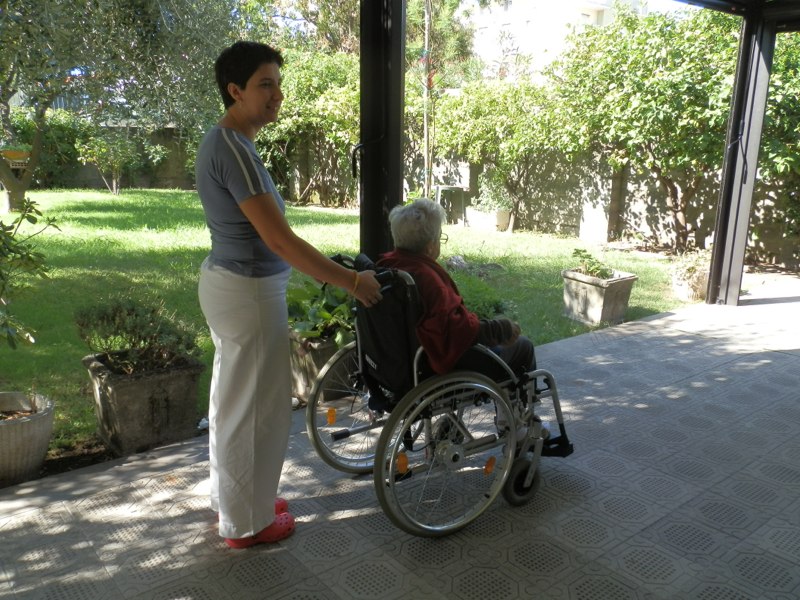
13 May 2018 | Focolare Worldwide
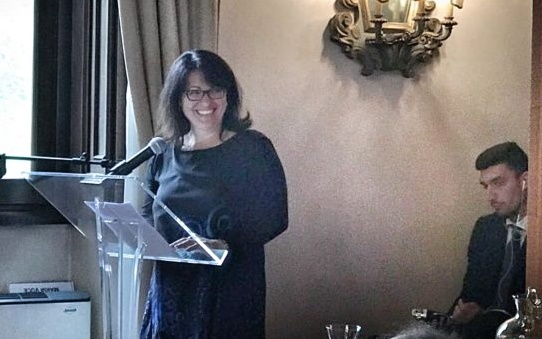 She lives and works in the province of Genoa, in a city of the North West, a very pleasant area between the sea and the mountains. Her role as president of one of the consortia of the social enterprise network with about seven hundred employees in the social service sector, welfare and job placement for disadvantaged people and regional representative of AIPEC (Italian Association of Entrepreneurs for an Economy of Communion) have in no way diminished her spontaneity and simplicity. Her testimony was closely listened to during a conference at the Italian Embassy in the Vatican, on May 3, 2018. The title of her talk was “Chiara Lubich and the Economy of Communion”: “I wanted to do a job that would be useful to others. As soon as I graduated, I won a public competition as an educator for the social integration of disabled children. I felt useful, but the job was paid by the hour and the contract was temporary. There were other girls in the same predicament as me, who had the same desire to develop themselves in the field of social service. One of them told the rest of us about some people who had been working in a cooperative for several years caring for disabled people. Meeting with them was definitive. They gave us a work space where we could work, dedicated time to us and offered their experience. That’s how our cooperative began, from a gift, from a gracious gesture that we embraced and then replicated. We later learned that that gesture was rooted in the Economy of Communion. This way of living that comes before the work, has marked and characterized the style of our own company.”
She lives and works in the province of Genoa, in a city of the North West, a very pleasant area between the sea and the mountains. Her role as president of one of the consortia of the social enterprise network with about seven hundred employees in the social service sector, welfare and job placement for disadvantaged people and regional representative of AIPEC (Italian Association of Entrepreneurs for an Economy of Communion) have in no way diminished her spontaneity and simplicity. Her testimony was closely listened to during a conference at the Italian Embassy in the Vatican, on May 3, 2018. The title of her talk was “Chiara Lubich and the Economy of Communion”: “I wanted to do a job that would be useful to others. As soon as I graduated, I won a public competition as an educator for the social integration of disabled children. I felt useful, but the job was paid by the hour and the contract was temporary. There were other girls in the same predicament as me, who had the same desire to develop themselves in the field of social service. One of them told the rest of us about some people who had been working in a cooperative for several years caring for disabled people. Meeting with them was definitive. They gave us a work space where we could work, dedicated time to us and offered their experience. That’s how our cooperative began, from a gift, from a gracious gesture that we embraced and then replicated. We later learned that that gesture was rooted in the Economy of Communion. This way of living that comes before the work, has marked and characterized the style of our own company.”
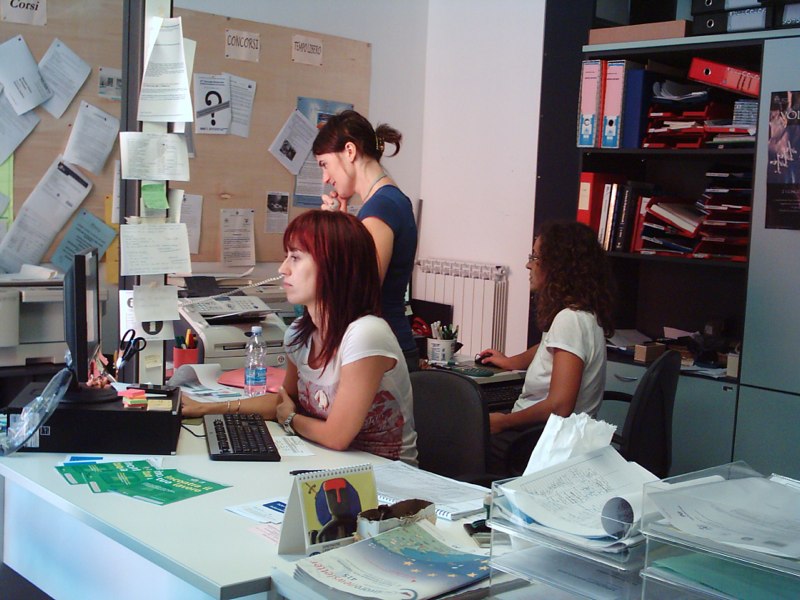
Photo © 2018 Il Sentiero di Arianna

© 2018 Il Sentiero di Arianna
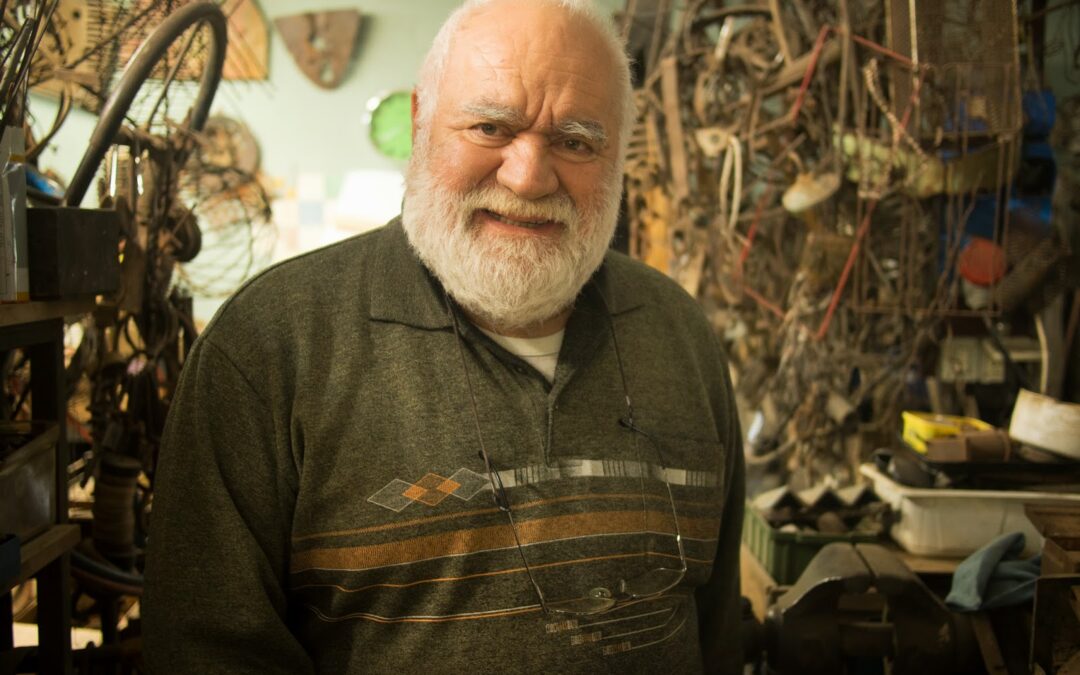
8 May 2018 | Focolare Worldwide
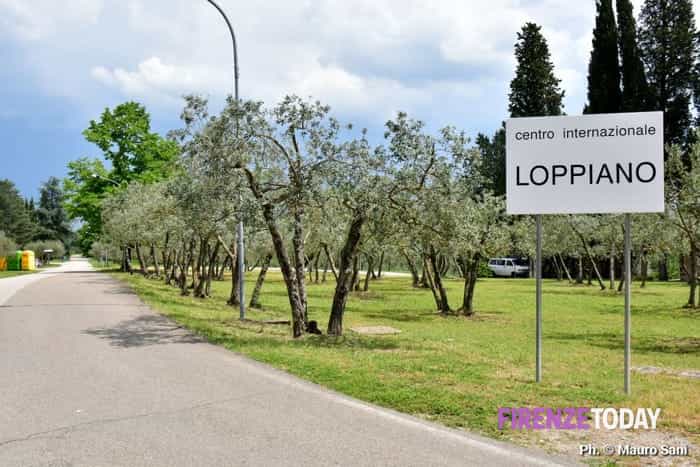 «What did you do when you were my age? What games did you like best?». 10-year-old Luis Francisco from Mexico, now in Loppiano, has these questions in mind as he awaits the arrival of Pope Francis. Together with all the residents of this international Focolare town, Luis has been counting the days to May 10th since early February when the Pope’s secretary first announced this surprise visit to the Christian communities of Nomadelfia and Loppiano, both located in the Tuscan hills. Pope Francis is coming in person to see how life is lived “in the school of the one and only Master”, as he once described Loppiano, the first of 24 Focolare towns around the world. Focolare President, Maria Voce expressed “surprise and profound joy” at the news of this totally unexpected visit. Loppiano is full of life, its streets illuminated by the happy smiling faces of young people who came in their hundreds to spend the last week of April together. With thousands more, they have just celebrated the all-Italy “Genfest” on May 1st when their joy could not be dampened even by the threat of rain. Now, as the big day approaches, the atmosphere of hopeful anticipation is becoming even more palpable.
«What did you do when you were my age? What games did you like best?». 10-year-old Luis Francisco from Mexico, now in Loppiano, has these questions in mind as he awaits the arrival of Pope Francis. Together with all the residents of this international Focolare town, Luis has been counting the days to May 10th since early February when the Pope’s secretary first announced this surprise visit to the Christian communities of Nomadelfia and Loppiano, both located in the Tuscan hills. Pope Francis is coming in person to see how life is lived “in the school of the one and only Master”, as he once described Loppiano, the first of 24 Focolare towns around the world. Focolare President, Maria Voce expressed “surprise and profound joy” at the news of this totally unexpected visit. Loppiano is full of life, its streets illuminated by the happy smiling faces of young people who came in their hundreds to spend the last week of April together. With thousands more, they have just celebrated the all-Italy “Genfest” on May 1st when their joy could not be dampened even by the threat of rain. Now, as the big day approaches, the atmosphere of hopeful anticipation is becoming even more palpable. 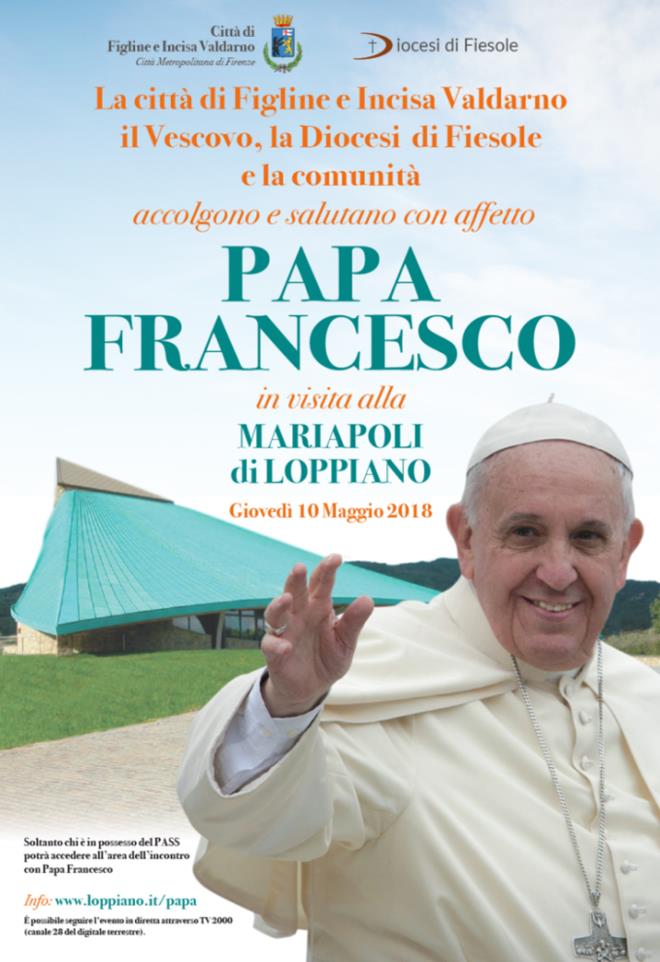 Video camera in hand, we walked through Loppiano, speaking to residents as they carry out their daily duties in this countdown period to the papal visit. Benedetta came to Loppiano for formation in the school of the Focolarine (the consecrated members of Focolare). She is welcoming the Pope’s visit as a personal gift from God as it comes on her own birthday. «No matter how short the visit, I hope he finds a family. That’s what we try to build among us every day». Since 1966 Loppiano has been home to Gen Rosso, a band inspired by Chiara Lubich’s desire to spread the message of a more just, peaceful and united world through music. The musicians strive to express this spirit in their own lives and not just in their songs, with a lifestyle of communion and fraternity. Michele Sole joined Gen Rosso a few years ago. He is preparing to sing “Sweetest of Mothers” on the steps of the town’s church dedicated to Theotokos, Mother of God. Michele is grateful to the Pope for having «the courage to take the name Francis. I don’t know how easy it was for him to choose a name which means preferential option for the poor and the least». The notes of “Turn on peace” float through the air, as Gen Rosso rehearse nearby with fellow Loppiano-based performers, the distinctively international band Gen Verde.
Video camera in hand, we walked through Loppiano, speaking to residents as they carry out their daily duties in this countdown period to the papal visit. Benedetta came to Loppiano for formation in the school of the Focolarine (the consecrated members of Focolare). She is welcoming the Pope’s visit as a personal gift from God as it comes on her own birthday. «No matter how short the visit, I hope he finds a family. That’s what we try to build among us every day». Since 1966 Loppiano has been home to Gen Rosso, a band inspired by Chiara Lubich’s desire to spread the message of a more just, peaceful and united world through music. The musicians strive to express this spirit in their own lives and not just in their songs, with a lifestyle of communion and fraternity. Michele Sole joined Gen Rosso a few years ago. He is preparing to sing “Sweetest of Mothers” on the steps of the town’s church dedicated to Theotokos, Mother of God. Michele is grateful to the Pope for having «the courage to take the name Francis. I don’t know how easy it was for him to choose a name which means preferential option for the poor and the least». The notes of “Turn on peace” float through the air, as Gen Rosso rehearse nearby with fellow Loppiano-based performers, the distinctively international band Gen Verde. 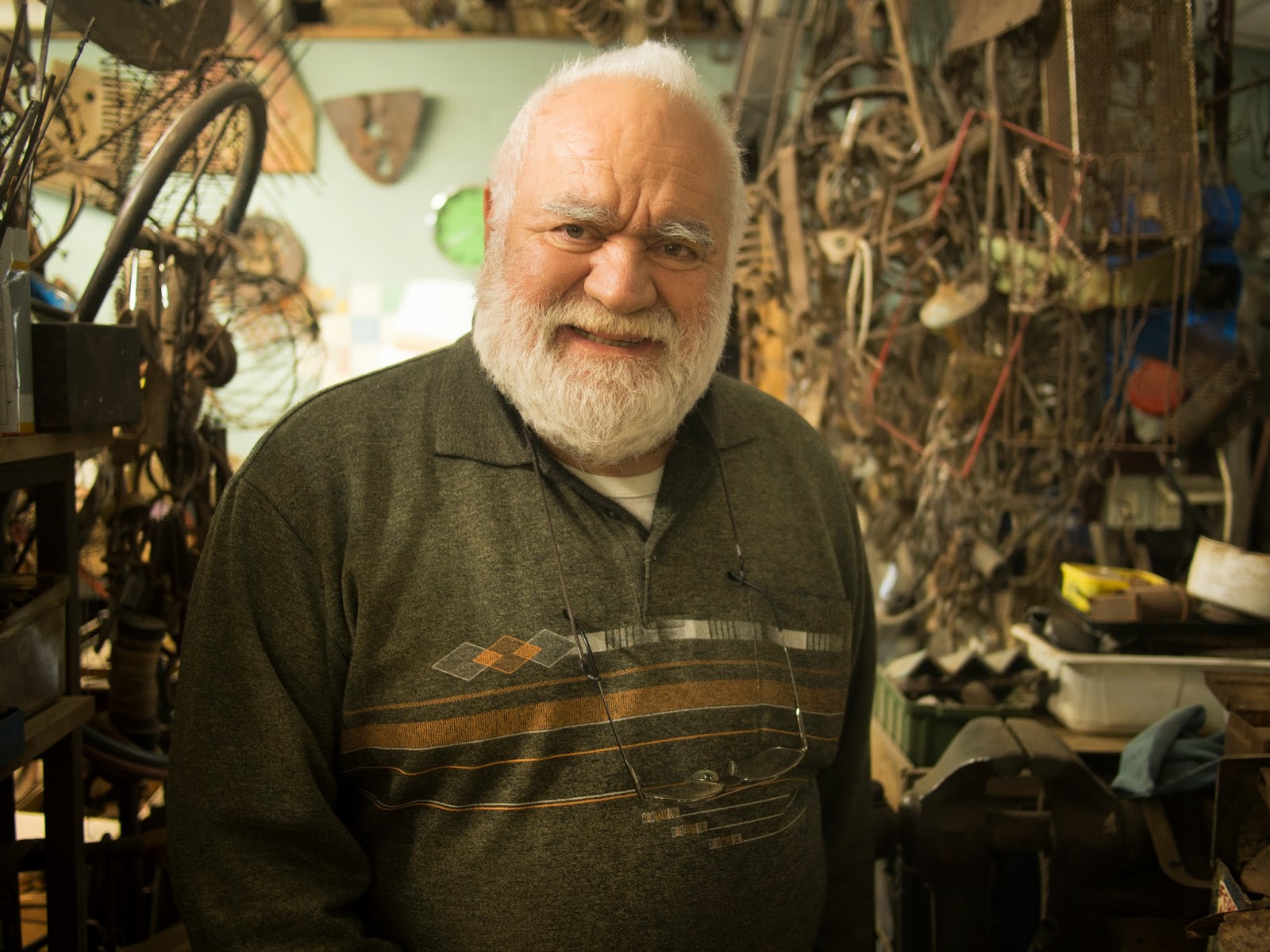 The artist Ciro, born Roberto Cipollone, has lived in Loppiano since 1977, where he exercises his gift of transforming discarded and waste objects into captivating works of art. This artist breathes new life into trash items. From his workshop emerge sculpture, craftworks and paintings, created in the fusion of an artistic imagination with love for the natural world. Ciro’s perspective on the forthcoming visit: «I hope the Pope may find some of his innermost desires fulfilled here». Aranza came to Loppiano with her family from Mexico to participate in the “Loreto School” for families of different countries and languages who together deepen their knowledge of the spirituality of unity. The annual courses which run from September to June provide a unique experience of cultural exchange and mutual enrichment. Aranza’s question to the Pope would be: «How can we young people best overcome the conditioning stereotypes the world tries to impose on us?». Natalia, is a Brazilian student attending Sophia University Institute in Loppiano. She would like to ask the Pope about the role of young married people in the Church. So many different questions, hopes and wishes, united in such joyful anticipation. Chiara Favotti
The artist Ciro, born Roberto Cipollone, has lived in Loppiano since 1977, where he exercises his gift of transforming discarded and waste objects into captivating works of art. This artist breathes new life into trash items. From his workshop emerge sculpture, craftworks and paintings, created in the fusion of an artistic imagination with love for the natural world. Ciro’s perspective on the forthcoming visit: «I hope the Pope may find some of his innermost desires fulfilled here». Aranza came to Loppiano with her family from Mexico to participate in the “Loreto School” for families of different countries and languages who together deepen their knowledge of the spirituality of unity. The annual courses which run from September to June provide a unique experience of cultural exchange and mutual enrichment. Aranza’s question to the Pope would be: «How can we young people best overcome the conditioning stereotypes the world tries to impose on us?». Natalia, is a Brazilian student attending Sophia University Institute in Loppiano. She would like to ask the Pope about the role of young married people in the Church. So many different questions, hopes and wishes, united in such joyful anticipation. Chiara Favotti
LIVE STREAMING from Loppiano on 10th May at 10.00 (CEST) http://live.focolare.org Vatican Media Live: from 8.00 am to 12.00 noon
http://vimeo.com/268796719

 It began as a dream, just as every other Focolare town had. In 1950, Switzerland, after contemplating from a mountain above the Benedictine Abbey of Einsiedeln, Chiara Lubich had the idea that one day the spirituality of unity would produce something similar: “A small town with all the elements of a modern city: houses, churches, schools, shops, businesses and other services. A community of people from diverse backgrounds joined by Jesus’s new commandment: ‘Love one another as I have loved you.’” Her dream came true, first in Loppiano, Italy, then in another 24 small towns. Mariapolis Lia is one of them in the middle of the Argentine Pampas. Carlos Becaria, who is co-responsible for the town, was a member of the first group of pioneers: “There wasn’t anything yet. But there was a prophetic inspiration. Vittorio Sabbione, one of the first focolarinos, said to us: “You’re here because you chose God. Discomforts won’t be lacking, so you’ll have to keep Jesus on the Cross in mind. I’m not offering you anything ready-made: you have to build it all for yourselves. We stayed because we believed in that dream.”
It began as a dream, just as every other Focolare town had. In 1950, Switzerland, after contemplating from a mountain above the Benedictine Abbey of Einsiedeln, Chiara Lubich had the idea that one day the spirituality of unity would produce something similar: “A small town with all the elements of a modern city: houses, churches, schools, shops, businesses and other services. A community of people from diverse backgrounds joined by Jesus’s new commandment: ‘Love one another as I have loved you.’” Her dream came true, first in Loppiano, Italy, then in another 24 small towns. Mariapolis Lia is one of them in the middle of the Argentine Pampas. Carlos Becaria, who is co-responsible for the town, was a member of the first group of pioneers: “There wasn’t anything yet. But there was a prophetic inspiration. Vittorio Sabbione, one of the first focolarinos, said to us: “You’re here because you chose God. Discomforts won’t be lacking, so you’ll have to keep Jesus on the Cross in mind. I’m not offering you anything ready-made: you have to build it all for yourselves. We stayed because we believed in that dream.”  Mariapolis Lia is named after Lia Brunet (December 25, 1917 – February 5, 2005), one of the first companions of Chiara Lubich, invited by her to become a pioneer and take the charism of unity to the Latin American continent. A woman of Trent, like the foundress of the Focolare, she was labelled a revolutionary because of the radical way they lived the Gospel on a continent marked by so many social problems. Obviously, she never imagined as she gave a strong push to the Mariapolis in Argentina, that one day it would bear her name. “Lia”, just like Loppiano in Italy, which was recently visited by Pope Francis, strives to be a tangible sign of a dream that is coming true: a more fraternal world renewed by the Gospel. Currently 220 people live in Mariapolis Lia, but it welcomes hundreds of visitors throughout the year, mostly young people for long or short stays. Nearby stands Solidaridad Business Park, inspired by the Focolare’s Economy of Communion Project.
Mariapolis Lia is named after Lia Brunet (December 25, 1917 – February 5, 2005), one of the first companions of Chiara Lubich, invited by her to become a pioneer and take the charism of unity to the Latin American continent. A woman of Trent, like the foundress of the Focolare, she was labelled a revolutionary because of the radical way they lived the Gospel on a continent marked by so many social problems. Obviously, she never imagined as she gave a strong push to the Mariapolis in Argentina, that one day it would bear her name. “Lia”, just like Loppiano in Italy, which was recently visited by Pope Francis, strives to be a tangible sign of a dream that is coming true: a more fraternal world renewed by the Gospel. Currently 220 people live in Mariapolis Lia, but it welcomes hundreds of visitors throughout the year, mostly young people for long or short stays. Nearby stands Solidaridad Business Park, inspired by the Focolare’s Economy of Communion Project.  More than 250 people took part in the celebrations at the end of April, which will continue during the 50th anniversary year of the Mariapolis’s founding. They will be attended by Church leaders, representatives from the Movement, Christian Churches, Jewish faithful and people with no religious affiliation. “We got there at night,” recalls Marta Yofre, one of the first young women to arrive on at the threshold of the Mariapolis. I was feeling a sense of powerlessness, but also one certainty: Our Lady would be the one to build it.” Nieves Tapia, founder of the Latin American Centre for Learning and Solidarity Service, attended the training school for young people in the 1980s: “Here I learned to love the other country as my own and to enlarge my heart to all of Latin America.” “Without realizing it, I was given the gift to experience as something normal, what was actually totally revolutionary: love for neighbour.” For Arturo Claria, a psychologist, UNESCO Master in Culture of Peace, what he experienced in the Mariapolis twenty years ago “is a mark that I will never be able to erase, a living demonstration that love transcends life.”
More than 250 people took part in the celebrations at the end of April, which will continue during the 50th anniversary year of the Mariapolis’s founding. They will be attended by Church leaders, representatives from the Movement, Christian Churches, Jewish faithful and people with no religious affiliation. “We got there at night,” recalls Marta Yofre, one of the first young women to arrive on at the threshold of the Mariapolis. I was feeling a sense of powerlessness, but also one certainty: Our Lady would be the one to build it.” Nieves Tapia, founder of the Latin American Centre for Learning and Solidarity Service, attended the training school for young people in the 1980s: “Here I learned to love the other country as my own and to enlarge my heart to all of Latin America.” “Without realizing it, I was given the gift to experience as something normal, what was actually totally revolutionary: love for neighbour.” For Arturo Claria, a psychologist, UNESCO Master in Culture of Peace, what he experienced in the Mariapolis twenty years ago “is a mark that I will never be able to erase, a living demonstration that love transcends life.”  The Bishop of Mercedes-Lujan, Augustin Radrizzani: “It’s moving to realize what significance it has had for our country and for the world. It unites universal peace and brotherly love, illumined by the grace of this ideal.” Eduardo Leibobich from the Hebrew Organization for Inter-Confessional Dialogue, recalled the numerous “Peace Days that were held by the Mariapolis. Methodist pastor Fernando Suarez from the Ecumenical Movement of the Human Rights of People With Different Convictions: “I extend an invitation to join forces. It’s too beautiful the ideal of a free and equal human race, made brother and sister by respect and by mutual love.” Gustavo Clariá
The Bishop of Mercedes-Lujan, Augustin Radrizzani: “It’s moving to realize what significance it has had for our country and for the world. It unites universal peace and brotherly love, illumined by the grace of this ideal.” Eduardo Leibobich from the Hebrew Organization for Inter-Confessional Dialogue, recalled the numerous “Peace Days that were held by the Mariapolis. Methodist pastor Fernando Suarez from the Ecumenical Movement of the Human Rights of People With Different Convictions: “I extend an invitation to join forces. It’s too beautiful the ideal of a free and equal human race, made brother and sister by respect and by mutual love.” Gustavo Clariá







 She lives and works in the province of Genoa, in a city of the North West, a very pleasant area between the sea and the mountains. Her role as president of one of the consortia of the social enterprise network with about seven hundred employees in the social service sector, welfare and job placement for disadvantaged people and regional representative of AIPEC (Italian Association of Entrepreneurs for an Economy of Communion) have in no way diminished her spontaneity and simplicity. Her testimony was closely listened to during a conference at the Italian Embassy in the Vatican, on May 3, 2018. The title of her talk was “
She lives and works in the province of Genoa, in a city of the North West, a very pleasant area between the sea and the mountains. Her role as president of one of the consortia of the social enterprise network with about seven hundred employees in the social service sector, welfare and job placement for disadvantaged people and regional representative of AIPEC (Italian Association of Entrepreneurs for an Economy of Communion) have in no way diminished her spontaneity and simplicity. Her testimony was closely listened to during a conference at the Italian Embassy in the Vatican, on May 3, 2018. The title of her talk was “

 «What did you do when you were my age? What games did you like best?». 10-year-old Luis Francisco from Mexico, now in
«What did you do when you were my age? What games did you like best?». 10-year-old Luis Francisco from Mexico, now in 
